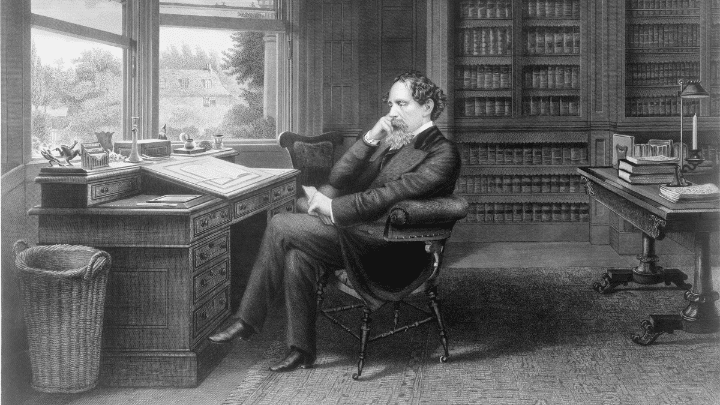10 Best George Orwell Essays You Should Read

George Orwell, born Eric Arthur Blair, was one of the most influential writers of the 20th century. He was renowned not only for his novels but also for his insightful essays. Orwell’s essays were powerful reflections on politics, literature, language, and human nature, and they continue to provoke thought to this day.
His essays transcended the literary boundaries of his time, reaching into social commentaries and providing profound insights into the world around him. Whether it was his criticism of totalitarian regimes or his passion for clear, concise language, Orwell’s essays have left an enduring mark on literary tradition.
This article will delve into some of the best essays penned by George Orwell, examining their themes, relevance, and why they remain essential reading for anyone interested in literature and societal reflection.
1. Politics and the English Language
In “Politics and the English Language,” Orwell criticises the decline of the English language, linking it to political manipulation and degradation. He argues that vague and abstract language leads to unclear thinking and can be used to deliberately deceive the public. The essay remains relevant today as a warning about the potential for language to be used as a tool of control and manipulation. It’s a must-read for writers, politicians, and anyone interested in the power and responsibility of words.
2. Shooting an Elephant
“Shooting an Elephant” is a narrative essay describing Orwell’s experience as a police officer in Burma. It explores the complexities of imperialism, guilt, and the conflict between personal conscience and societal expectations. More than just an account of a single event, this essay delves into the deep psychological impact of colonialism. It remains a powerful commentary on the human condition and the moral dilemmas that arise from positions of authority.
3. A Hanging
In “A Hanging,” Orwell recounts the execution of a prisoner in Burma. Through his vivid description, he explores the dehumanisation and casual brutality of capital punishment. This essay provides a haunting reflection on the loss of humanity within the system and the banality of evil. It prompts readers to question the morality and implications of the death penalty.
4. Why I Write
“Why I Write” is a semi-autobiographical essay in which Orwell explores his personal journey and motives for writing. He lays out his beliefs and the political purpose behind his work. The essay offers a glimpse into Orwell’s mind and his dedication to truth and clarity. It’s an inspiring read for writers and those interested in the intrinsic motivations behind creative pursuits.
5. Notes on Nationalism
In “Notes on Nationalism,” Orwell dissects the dangerous and irrational aspects of nationalism. He defines it not as loyalty to one’s country but as an obsessive identification with a cause, group, or idea. The essay remains alarmingly relevant in today’s political climate, providing insights into the mindset of extremist groups and the destructive potential of blind allegiance.
6. The Prevention of Literature
Orwell’s “The Prevention of Literature” discusses the threat of totalitarianism on free thought and creativity. He argues that oppressive regimes stifle intellectual freedom and artistic expression. The essay serves as a cautionary tale about the fragile nature of creative freedom and the importance of defending it from political encroachment.
7. Such, Such Were the Joys
“Such, Such Were the Joys” is a recollection of Orwell’s early years in an English boarding school. He reflects on the class prejudices and the harsh, often brutal environment of his education. The essay reveals much about the British class system of the time and provides a personal and poignant look at childhood experiences that shaped Orwell’s views.
8. How the Poor Die
“How the Poor Die” gives an account of Orwell’s time in a Paris hospital, offering a grim picture of healthcare for the underprivileged. It illustrates the vast disparities in treatment between the rich and poor. This eye-opening essay continues to resonate today, as it highlights ongoing issues related to healthcare inequality and human dignity.
9. Books vs. Cigarettes
In “Books vs. Cigarettes,” Orwell discusses the perception that books are an expensive luxury, comparing the cost of reading to other common expenditures. He challenges the notion that reading is an elitist activity. This light-hearted yet thought-provoking essay continues to be relevant as it raises questions about accessibility to literature and cultural pursuits in general.
10. Inside the Whale
“Inside the Whale” is a literary essay where Orwell reviews the work of Henry Miller and others. He explores the role of the writer in society, particularly during times of upheaval and change. This complex and nuanced essay offers insight into the literary landscape of Orwell’s time and his views on the function of literature within society.
Conclusion
George Orwell’s essays remain a remarkable testament to his intellect and moral clarity. Each of these essays, whether exploring political deceit, social inequality, or the personal motivations behind writing, resonates deeply with readers even today.
In a world continually grappling with many of the same issues Orwell addressed, his essays serve as both a warning and a guide, offering insights that are as relevant now as they were when first penned. It is this timeless quality that ensures Orwell’s place among the literary giants, and why these essays remain essential reading for anyone seeking to understand the human condition.






